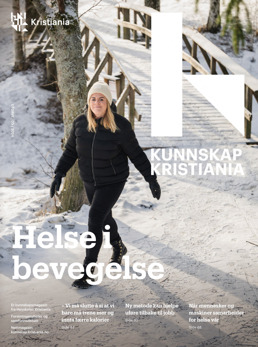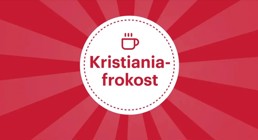Scandinavian responses to a crisis
SCIENCE NEWS FROM KRISTIANIA: Magde Mohamed Nour on crisis communication during COVID-19
Renowned for their robust healthcare systems and superior living standards, Scandinavian nations faced a rigorous test during the covid-19 pandemic. Despite their intertwined geographical and cultural links, Denmark, Sweden, and Norway unfolded divergent approaches to combating this unseen adversary, revealing subtle nuances within their governance, public health strategies, and communication methodologies.
Crafting a collective response
Navigating uncharted territories, Scandinavian leaders harnessed a range of communication strategies, intertwining scientific rationale, public health imperatives, and a plea for collective responsibility. Messages were crafted to instruct and inspire, motivate, and mobilize their nations toward a common goal. Sweden, for instance, emphasized tolerance and a collective, sustainable approach, advocating for methods their society could uphold for an extended duration.
Norwegian communications interwove messages of nationalism and solidarity, while Denmark ensured the transparent conveyance of their strategies and rationale, aiming to nurture understanding and compliance among citizens.
A crisis unfolds
As covid-19 relentlessly threaded its way across the globe in early 2020, Scandinavian countries were not invulnerable despite being shielded by their adept healthcare frameworks.

Meld deg på vårt nyhetsbrev
All three nations, Denmark, Sweden, and Norway, recorded their inaugural cases in February, swiftly followed by escalating infection rates and mortality. An intimate examination discloses the profound and intriguing ways these nations navigated policy making, crisis management, and public communication during these pivotal times.
Diverse strategies, a common enemy
In its initial response, Sweden adopted a conspicuously lenient approach, eschewing stringent lockdowns and placing a substantial emphasis on individual responsibility, with advice and recommendations taking precedence over enforced restrictions. Swedish Prime Minister Stefan Löfven encapsulated this sentiment, underlining the pandemic's enduring nature and asserting that individuals' diligence and adherence to guidelines were crucial for national wellbeing.

Les temautgaven
Conversely, Norway and Denmark implemented stricter and more authoritarian measures. Norway enacted the National Preparedness Act and executed a lockdown, ensuring comprehensive awareness through multilingual alerts to citizens and foreign investors alike. In response to a concerning surge in cases, Denmark introduced new policies, amended existing legislations, and enforced measures, such as social gathering restrictions and border controls, to curb the spread of the virus.
Unveiling resilience and flexibility
The responses from these countries reveal discrepancies in their immediate strategic approaches and showcase their systemic resilience and flexibility in adapting to an evolving crisis. Although Sweden's more lenient approach was met with global scrutiny, the various strategies in the Scandinavian countries were deeply entrenched in the respective nations' socio-cultural, political, and administrative contexts.
A tension between decentralized and centralized management
Intriguingly, the pandemic highlighted the tension between decentralized and centralized management within the healthcare systems of these nations. Denmark and Norway, utilizing centralized decision-making, could promptly enact comprehensive policies, such as lockdowns and movement restrictions. Meanwhile, Sweden's decentralized model placed significant autonomy in the citizens' hands, aligning with their historically ingrained values of personal freedom and responsibility.
The role of individuals as active participants
Beyond policy making and strategy implementation layers, the Scandinavian responses collectively illuminated the indispensable role of the individual. Through public address, leaders of these nations acknowledged the intrinsic value of each citizen's contribution, crafting a narrative where every person became a pivotal component in battling the pandemic.
Strategies for the future
While the contours of the covid-19 responses among the Scandinavian nations diverged, unity prevailed as a common thread: in adherence to recommendations, compliance with restrictions, and a shared commitment to societal well-being.
The strategies adopted by each country offer unique insights into their governance structures, public health systems, and societal values, providing a rich tapestry for comparative analysis and facilitating future learning and preparedness for the global challenges that lie ahead. covid-19 underscored that while a virus may not respect borders, a unified, well-communicated approach rooted in a country's socio-political context is paramount in steering through such crises. It serves as a reminder that the collective actions of individuals, guided by clear, compassionate, and coherent leadership communication, form an invaluable asset in confronting adversities that span across nations.
Tekst: Magde Mohamed Nour, Ph.d.-candidate, Department of Health Sciences, Kristiania.
This text was published at Science Norway on 3rd of April 2024 titled "Embracing unity: how Scandinavia responded to combat Covid-19".
References:
Bjørkdahl, K., Kjeldsen, J. E., Villadsen, L., & Vigsø, O. (2021). Argumentum ad solidaritatem: Rhetorical Leadership Strategies in Scandinavia During COVID-19. In Communicating COVID- 19 (pp. 163-184). Springer.
Christensen, T., & Lægreid, P. (2020). Balancing governance capacity and legitimacy: how the Norwegian government handled the COVID‐19 crisis as a high performer. Public Administration Review, 80(5), 774-779.
Lemke, T. (2015). Foucault, governmentality, and critique. Routledge.
Yarmol-Matusiak, E. A., Cipriano, L. E., & Stranges, S. (2021). A comparison of COVID-19 epidemiological indicators in Sweden, Norway, Denmark, and Finland. Scandinavian Journal of Public Health, 49(1), 69-78.
We love hearing from you:
Send your comments and questions regarding this article by e-mail to kunnskap@kristiania.no.
Siste nytt fra Kunnskap Kristiania
 Kunnskap KristianiaLes mer
Kunnskap KristianiaLes merHva er god utdanning?
I Kunnskap Kristianias nye temautgave har vi invitert forskere og undervisere til å reflektere rundt hvordan vi lærer, og hvordan god utdanning formes. Kunnskap KristianiaLes mer
Kunnskap KristianiaLes merFred for enhver pris?
Kjære Nobelkomité: Det finnes tider da dere ikke bare deler ut en pris, men skriver i verdens moralske grunnbok. Kunnskap KristianiaLes mer
Kunnskap KristianiaLes merShort exchange programmes provide meaningful learning experiences
By participating in an exchange programme, students develop skills such as critical thinking, empathy and intercultural understanding. Kunnskap KristianiaLes mer
Kunnskap KristianiaLes merBlack Friday: kjøpefest eller klimaskam?
Adventstiden handler ikke bare om lys og forventning. Den handler like mye om handelens egen høytidsdag.




